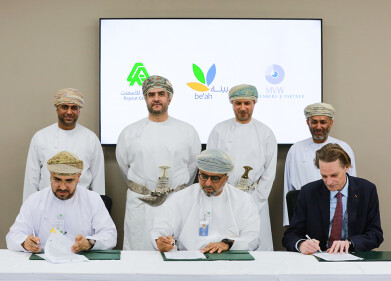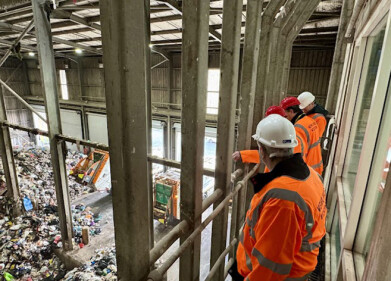Waste management
How Many Face Masks Will Pollute Ocean?
Feb 02 2021
In the wake of the outbreak of coronavirus, countries across the globe have introduced the mandatory wearing of face masks when in public. While such a measure may well serve an important role in limiting the spread of COVID-19, it also has a less desirable consequence – an increase in plastic pollution.
Indeed, one recent study conducted by marine conservation organisation OceansAsia concluded that 1.56 billion face masks would end up in our seas and oceans during 2020 alone. That’s the equivalent of 6,240 tonnes of plastic waste – but even more horrifyingly, those masks comprise just a drop in the ocean when it comes to the real scale of plastic pollution.
COVID repercussions
The OceansAsia report projected that a total of 52 billion face masks were manufactured in 2020, with around 3% of those ending up in the ocean – by all accounts, a very conservative estimate. But while masks might be one of the most obvious environmental implications of coronavirus, it’s far from the only one.
An over-reliance on convenience foods like takeaway and delivery options have contributed to an increase in the use (and improper disposal) of single-use containers and cutlery, while hygiene concerns have prompted a rise in popularity of other plastic items. Meanwhile, pending legislation intended to clamp down on plastic waste has been delayed or rolled back indefinitely in order to focus on the virus.
A colossal problem
Of course, the global plastic waste issue is not one that has sprung up overnight due to COVID-19. It’s thought that between eight and 12 million metric tonnes of the stuff wind up in our seas and oceans each year, causing significant damage to the marine flora and fauna living beneath the waves. Some animals can mistake microplastics for food and ingest them, while others become entangled in the substance and suffocate or starve.
In total, it’s estimated that plastic pollution is responsible for the deaths of 100,000 turtles and marine mammals, as well as more than a million birds and even more fish species. Meanwhile, its negative impacts are not just confined to the sea; humans are affected by its detrimental influence on fisheries and tourism, too.
A cleaner tomorrow
As is often the case, the best way to tackle the problem on an individual basis is by following the lead of the scientific community and heeding their advice with regard to our own habits. This involves re-evaluating our attitudes to plastic and trying to reduce our consumption, reuse items where we can and recycle those which have come to the end of their lifespan.
“It is critical that we work to reduce our use of single-use plastics, and we all have a role to play,” explains Dr Phelps Bondaroff, one of the authors of the OceansAsia study. “There are reusable and sustainable options for almost every single single-use plastic item. Please wear a reusable mask, unless absolutely necessary, and be sure to dispose of all masks responsibly.”
Events
Apr 08 2025 Targi Kielce, Poland
Apr 08 2025 Bahrain
Apr 10 2025 Beijing, China
Apr 10 2025 Beijing, China
Apr 15 2025 Moscow, Russia














